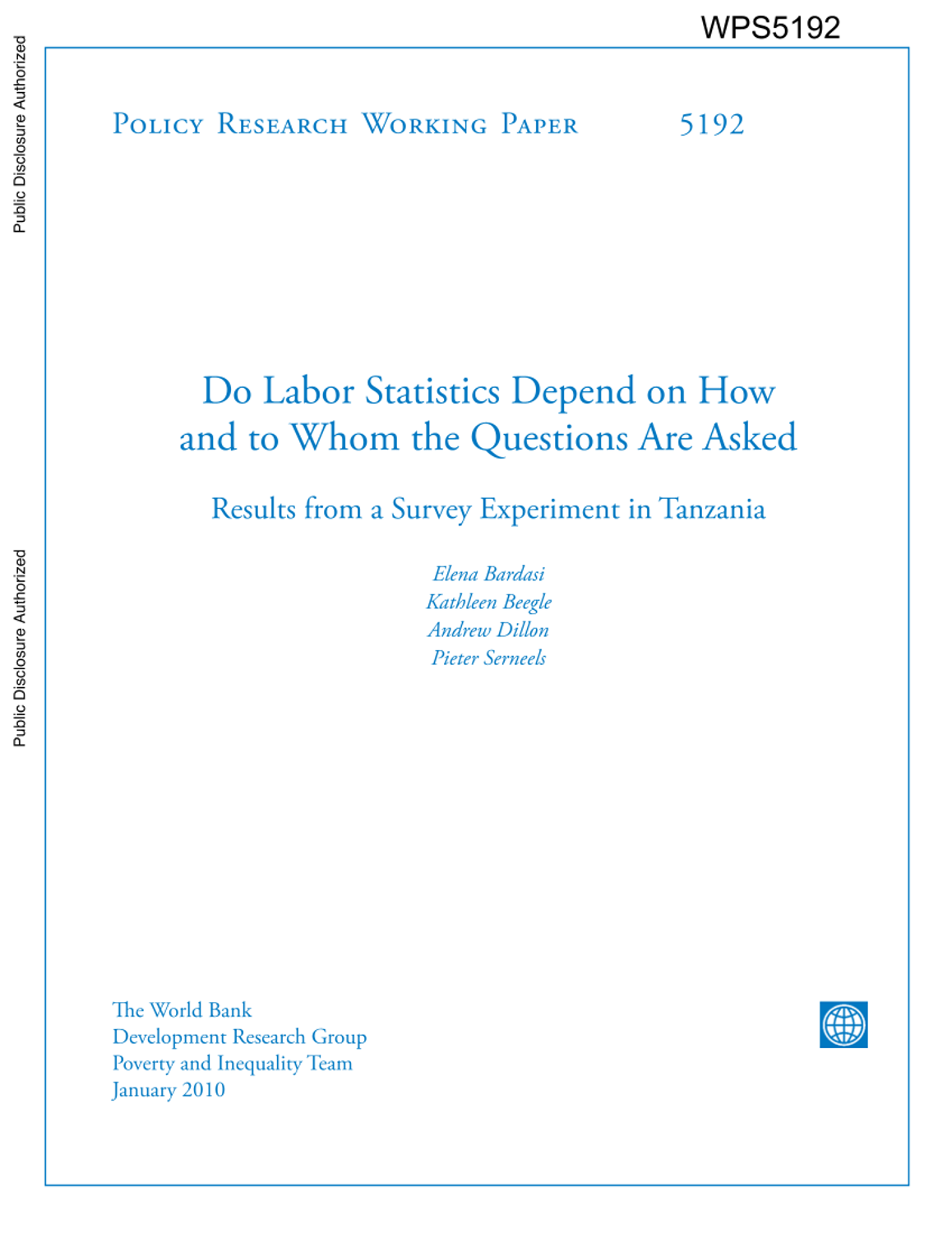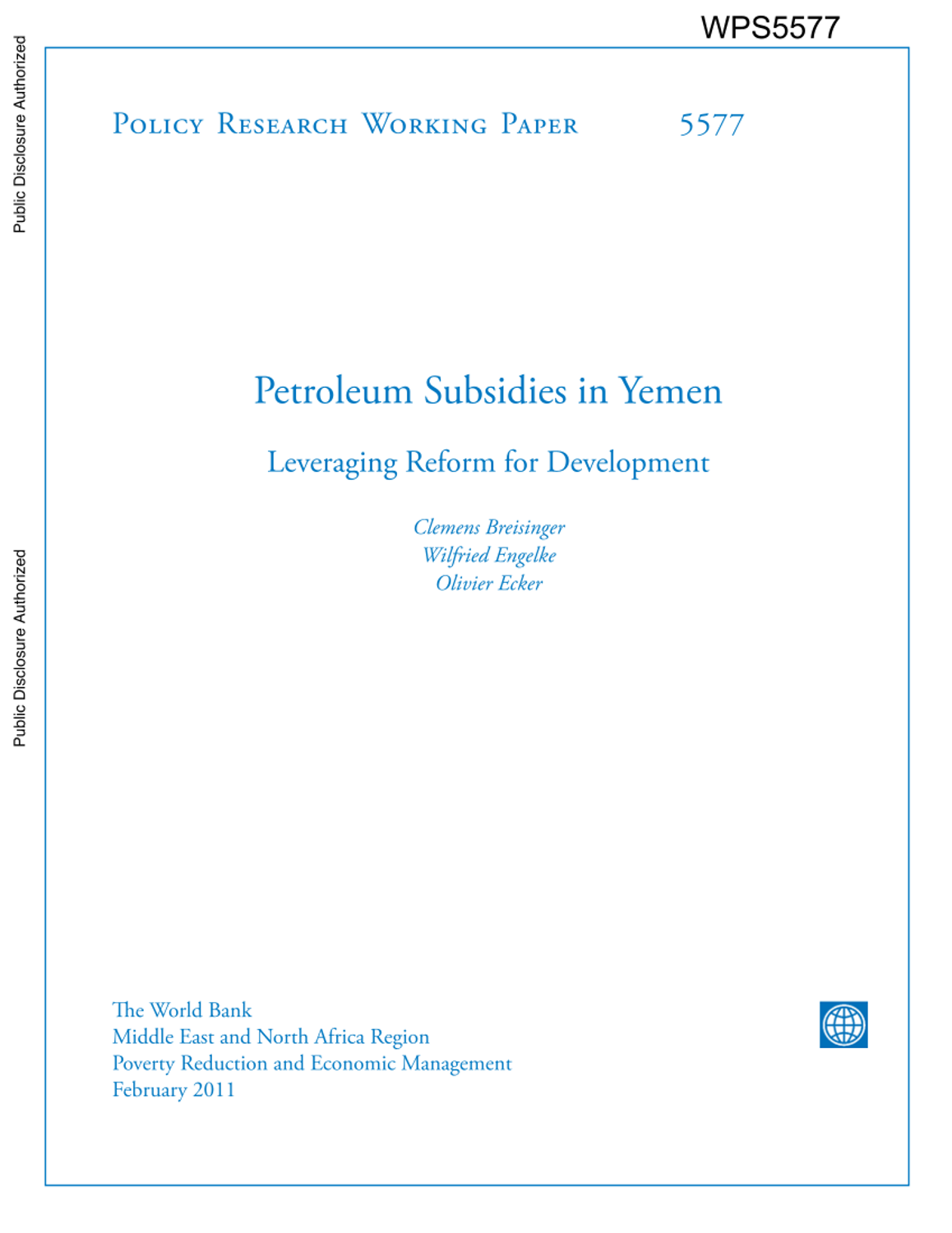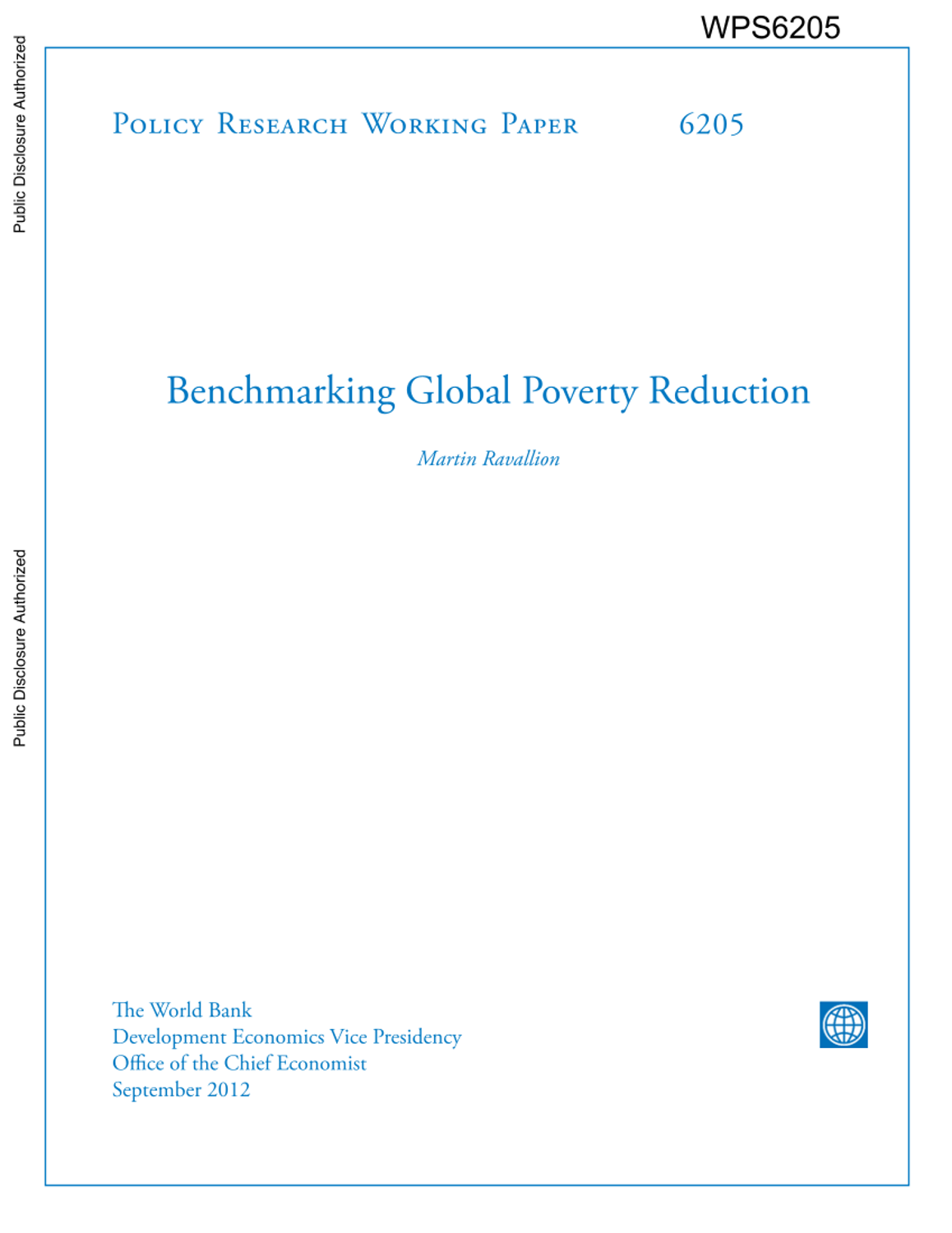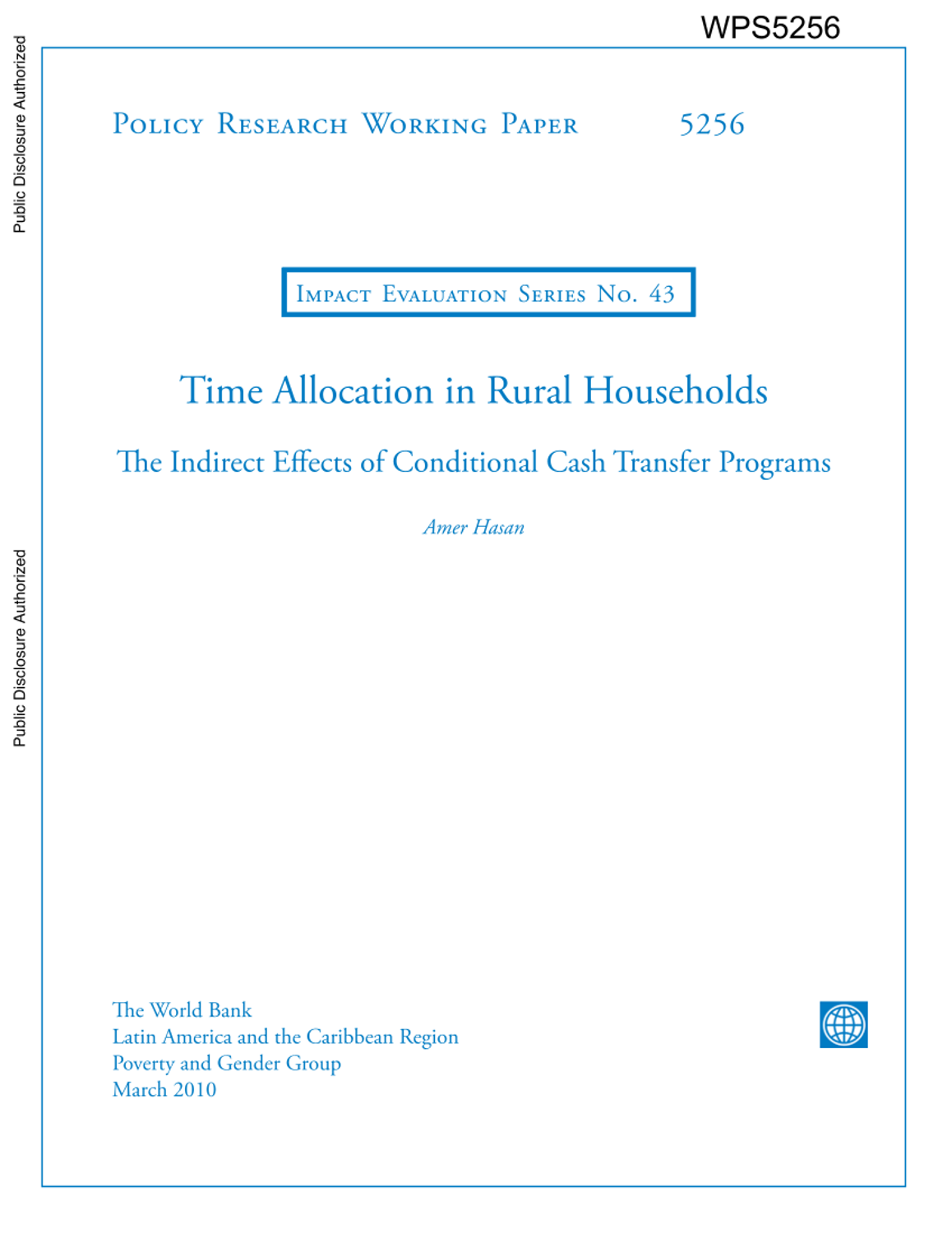연구보고서World Bank Policy Research Working Paper 5192
Do labor statistics depend on how and to whom the questions are asked ? results from a survey experiment in Tanzania
- 청구기호
- WPS 5192
- 발행사항
- Washington,D.C : World Bank, 2010
- 형태사항
- 58 p. :. PDF file ;. 1250 KB
- 키워드
- LABOR STATISTICS, QUESTION, LABOR, HOW, WHOM
- 바로가기
소장정보
| 위치 | 등록번호 | 청구기호 / 출력 | 상태 | 반납예정일 |
|---|---|---|---|---|
이용 가능 (1) | ||||
| E0001243 | 대출가능 | - | ||
이용 가능 (1)
- 등록번호
- E0001243
- 상태/반납예정일
- 대출가능
- -
- 위치/청구기호(출력)
책 소개
Labor market statistics are critical for assessing and understanding economic development. In practice, widespread variation exists in how labor statistics are measured in household surveys in low-income countries. Little is known whether these differences have an effect on the labor statistics they produce. This paper analyzes these effects by implementing a survey experiment in Tanzania that varied two key dimensions: the level of detail of the questions and the type of respondent. Significant differences are observed across survey designs with respect to different labor statistics. Labor force participation rates, for example, vary by as much as 10 percentage points across the four survey assignments. Using a short labor module without screening questions on employment generates lower female labor force participation and lower rates of wage employment for both men and women. Response by proxy rather than self-report yields lower male labor force participation, lower female working hours, and lower employment in agriculture for men. The differences between proxy and self reporting seem to come from information imperfections within the household, especially with the distance in age between respondent and subject playing an important role, while gender and educational differences seem less important.






